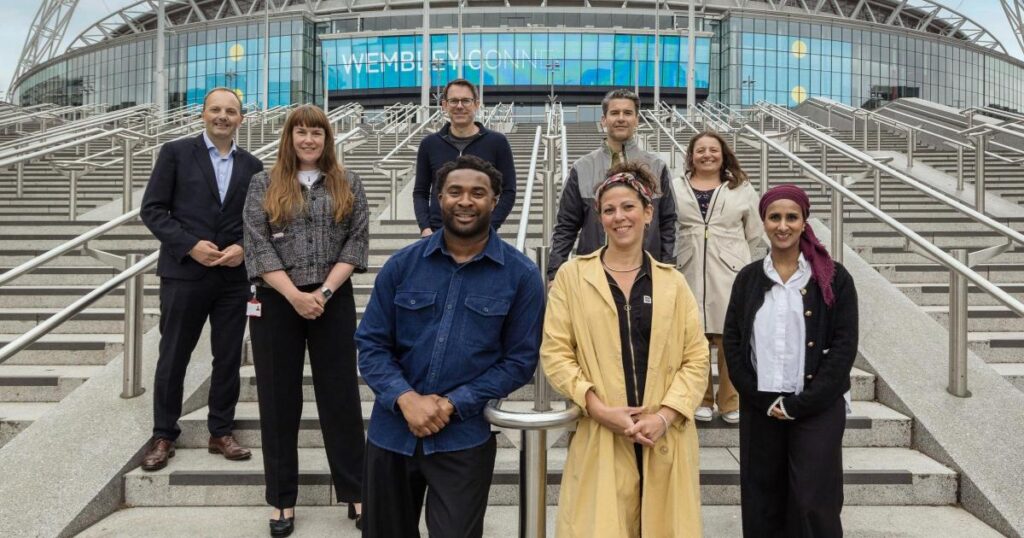The ‘Brent Giving’ partnership is the first community-led fund to tackle poverty by supporting grassroots ideas that people living in the area come up with themselves.
The fund is supported by the Football Association and Quintain Wembley Park developers, as well as Sovereign Housing Foundation, South Kilburn Trust and Harlesden Neighbourhood Forum.
Money is also being raised from businesses, trusts and well-wishing donors like the City Bridge Trust.
“Launching this fund is a landmark moment,” Harlesden Neighbourhood Forum’s chair Sandra White said. “This is an opportunity to transform how we support one another.
“It’s driven by the same spirit of solidarity that runs through Harlesden — a belief that we can create lasting change when we work together for families facing the hardest times.”
The idea follows on from Brent Mutual Aid, which was mobilised during the 2020 Covid crisis to support thousands of people struggling to cope during lockdown.
Money raised is for grants with people in the community helping to decide how the cash is used and who gets it, choosing which projects and making sure decisions are by those living in the area who know the issues.
Elijah Williams, who has a background in youth justice, is the fund’s new director. He said: “It’s about putting Brent’s future in the hands of those who know the area best — its residents.”
Brent has one of the highest poverty rates in London, with almost a third of the families on the breadline, fundraisers say.
The first round of hand-outs is a £50,000 pilot running from November to next April, available for grassroots projects that tackle poverty and inequality. Neighbourhoods identified so far for funding ideas include Harlesden, Kilburn, Stonebridge, Dollis Hill and Willesden Green.
Ideas could include youth work, ‘wellbeing’ projects, helping people living in isolation or anything that improves opportunity and connection.
The fund aims to raise and distribute up to £1million over the next three years, supporting those in poverty and inequality, especially low-income families and people facing systemic social barriers.




